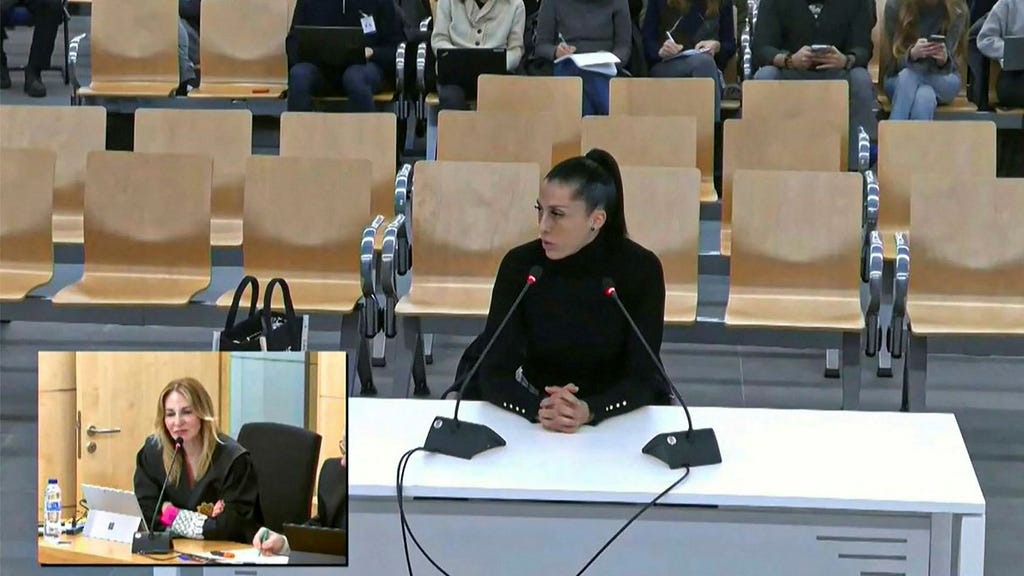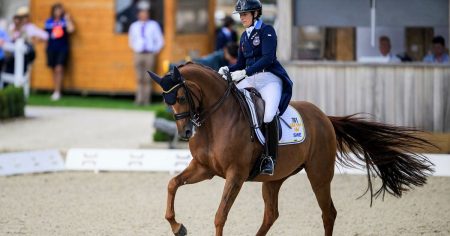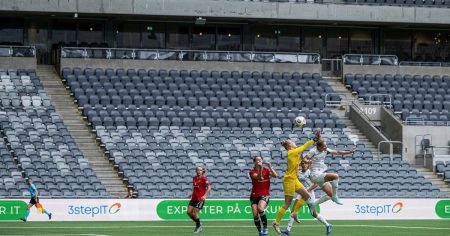The Trial of Luis Rubiales: A Deep Dive into the Spanish Football Scandal
The courtroom in Madrid buzzed with anticipation as Jennifer Hermoso, the star player of the Spanish women’s national football team, took the stand. For over three hours, Hermoso recounted the events of that fateful day following Spain’s World Cup victory in 2023. The focus of her testimony revolved around the unsolicited kiss she received from Luis Rubiales, then president of the Royal Spanish Football Federation (RFEF), on the awards podium. Repeatedly, the defense questioned her seemingly muted reaction at the time, implying consent or a lack of distress. Hermoso firmly rebutted these suggestions, stating, “I don’t need to throw myself crying on the ground to prove I didn’t like the kiss.” She emphasized the power imbalance inherent in the situation, stating that her "boss" kissed her, an act she deemed entirely inappropriate and disrespectful. The tense atmosphere in the courtroom was further exacerbated by frequent disruptions from Rubiales and his lawyer, Olga Tubau, whose loud conversations drew repeated warnings from the presiding judge. The global media presence, with over 100 journalists from eight countries, highlighted the international significance of the case.
The trial, expected to span 13 days, centers on charges of sexual assault and coercion against Rubiales, who faces a potential prison sentence of up to two and a half years. Alongside him stand Jorge Vilda, the former coach of the women’s national team, and Rubén Ribera, the RFEF’s former marketing director. They are accused of pressuring Hermoso to downplay the incident and minimize its impact. Hermoso testified that she faced immense pressure from the RFEF to participate in a video alongside Rubiales, portraying the kiss as consensual and insignificant. She claimed that Vilda even threatened her brother, suggesting that her refusal to cooperate would jeopardize her football career. This pressure, Hermoso stated, created a conflict within her, tainting the joy of her team’s historic victory. The incident, she explained, cast a long shadow over what should have been the pinnacle of her career, leaving her questioning why she had been subjected to such an experience.
The aftermath of the incident extended far beyond the immediate aftermath, significantly impacting Hermoso’s life and well-being. The intense media scrutiny that followed forced her to leave Madrid and contend with constant harassment. She described the ordeal of having cameras stationed outside her home, following her every move, and even receiving death threats. This unrelenting pressure, she explained, made it difficult even to leave her house and created an unbearable living situation. Furthermore, Hermoso expressed disappointment with the lack of support from the RFEF, stating that no one inquired about her well-being during this trying period. She felt abandoned and vulnerable, left to deal with the fallout alone. This lack of institutional support underscores the deeper issues within the Spanish football federation and highlights the pressure Hermoso faced in speaking out.
The first day of the trial also saw testimonies from the former press officer of the Spanish women’s national team and the former head of the women’s football section. The trial continued with testimonies from other key figures, including Luis de la Fuente, the coach of the men’s national team. The witness list also includes prominent players like Alexia Putellas, Irene Paredes, Laia Codina, and Misa Rodriguez, whose testimonies will likely provide further insight into the culture within the Spanish national team and the events surrounding the Rubiales incident. The trial holds significant implications for Spanish football and the broader conversation about consent and power dynamics within sports.
The Rubiales case has become a focal point in the ongoing struggle for gender equality within Spanish football. It has exposed underlying tensions and brought to light long-standing concerns about the treatment of women players. Hermoso’s courageous testimony has resonated with many, sparking a wider debate about sexism and power abuse in sports. This trial is not just about a kiss; it is about challenging a culture that has often silenced and marginalized women athletes. The outcome will undoubtedly have a lasting impact on the future of Spanish football and could potentially serve as a catalyst for meaningful change.
The international attention surrounding the trial highlights the global significance of this case. It underscores the growing awareness and intolerance of inappropriate behavior towards women in sports. The outcome of the trial will send a powerful message about accountability and the importance of creating a safe and respectful environment for all athletes. The testimonies of Hermoso and other key figures provide a crucial opportunity to examine the systemic issues that allowed such an incident to occur and to implement measures to prevent similar situations in the future. The world is watching, and the verdict will undoubtedly have far-reaching consequences for the world of sports.














